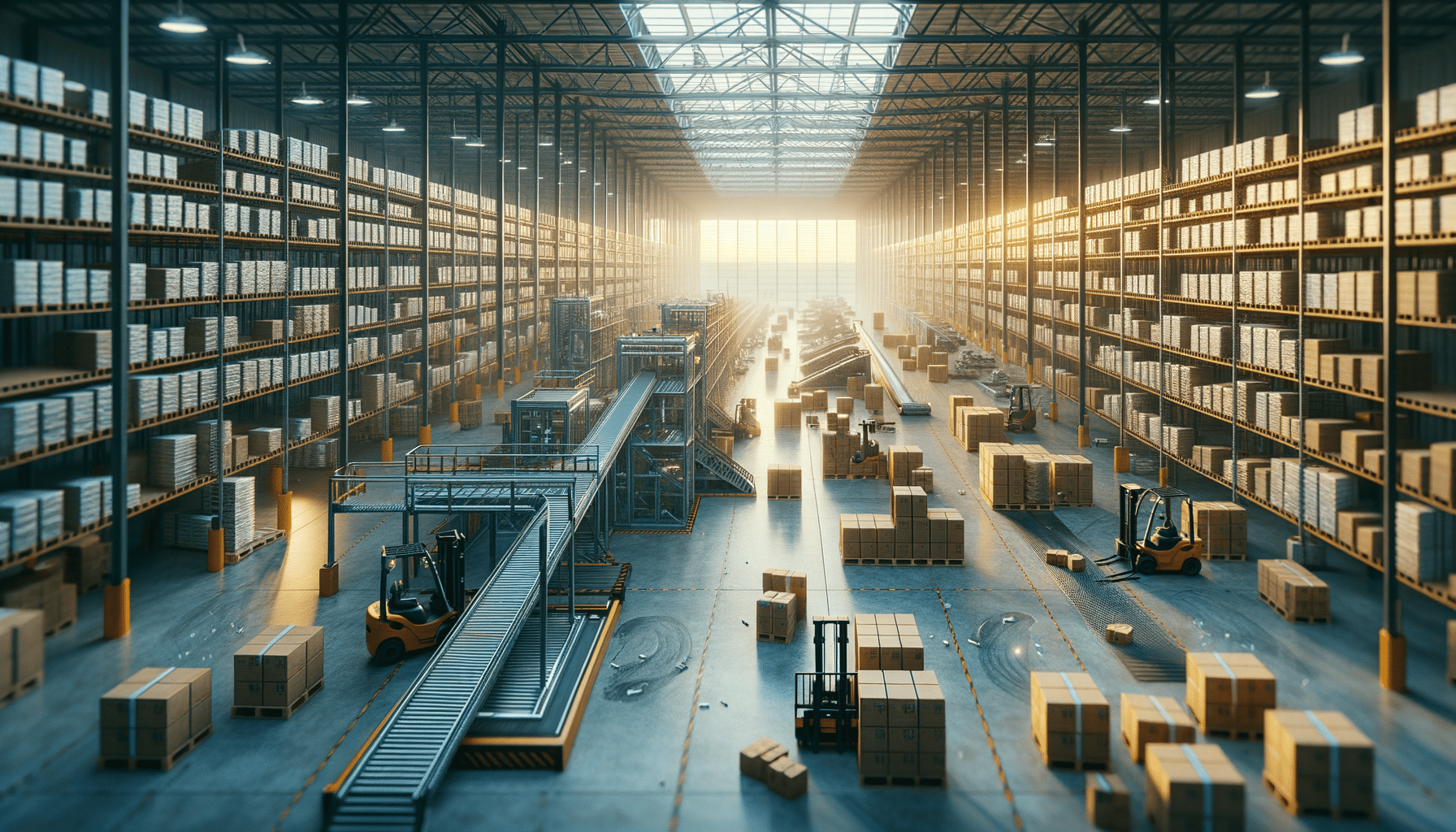
Understanding the Logistics System: A Comprehensive Guide
The Core Components of a Logistics System
At the heart of any logistics system are several core components that work synergistically to ensure the smooth movement of goods from point A to point B. These components include transportation, warehousing, inventory management, order fulfillment, and supply chain management. Each element plays a pivotal role in the overall efficiency and effectiveness of the logistics system.
Transportation is perhaps the most visible aspect of logistics, involving the movement of goods by road, rail, air, or sea. Each mode of transportation offers unique advantages and challenges, with factors such as cost, speed, and environmental impact influencing the choice. Warehousing, on the other hand, focuses on the storage of goods. Effective warehousing strategies ensure that products are stored safely and are readily accessible when needed.
Inventory management is crucial for maintaining the right balance of stock to meet customer demand without overstocking, which can tie up capital. Techniques such as Just-In-Time (JIT) inventory can optimize this process, reducing waste and increasing efficiency. Order fulfillment involves the entire process of receiving, processing, and delivering orders to customers, a critical component that directly affects customer satisfaction.
Finally, supply chain management encompasses the broader network of organizations and processes involved in producing and delivering a product. A well-managed supply chain can reduce costs and improve service levels, making it a vital part of the logistics system.
Technological Advancements in Logistics
The logistics industry has seen significant technological advancements in recent years, transforming how goods are managed and transported. Innovations such as automation, the Internet of Things (IoT), and data analytics have brought about greater efficiency, accuracy, and speed in logistics operations.
Automation technologies, including robotics and automated guided vehicles (AGVs), have revolutionized warehousing and distribution centers. These technologies reduce human error, improve safety, and increase productivity. The IoT plays a crucial role in real-time tracking and monitoring of goods, providing valuable data that can be used to optimize routes and reduce delays.
Data analytics offers insights into various logistics processes, helping companies make informed decisions. By analyzing data patterns, logistics managers can identify inefficiencies, predict demand, and optimize supply chain operations. Blockchain technology also promises to enhance transparency and security in logistics by providing a tamper-proof record of transactions.
These technological advancements not only improve operational efficiency but also enhance customer experience by providing more accurate delivery times and reducing costs. As technology continues to evolve, the logistics system will become even more integrated and efficient.
Environmental Considerations in Logistics
As global awareness of environmental issues increases, the logistics industry is under pressure to reduce its environmental footprint. Sustainable logistics practices are becoming more prevalent as companies seek to minimize their impact on the planet while maintaining efficiency and profitability.
One of the primary environmental concerns in logistics is the emission of greenhouse gases from transportation. Companies are exploring alternative fuels, such as biofuels and electric vehicles, to reduce their carbon emissions. Additionally, optimizing transportation routes and consolidating shipments can significantly decrease fuel consumption and emissions.
Packaging is another area where logistics companies can make a positive environmental impact. By using recyclable or biodegradable materials and optimizing packaging sizes, companies can reduce waste and improve sustainability.
Moreover, logistics companies are increasingly adopting green supply chain practices, which involve evaluating and selecting suppliers based on their environmental performance. This holistic approach ensures that sustainability is considered at every stage of the logistics process.
Implementing sustainable logistics practices not only benefits the environment but can also lead to cost savings and improved brand reputation, making it a win-win situation for companies and the planet.
Challenges in the Logistics System
Despite the advancements and opportunities, the logistics system faces several challenges that can hinder its efficiency and effectiveness. These challenges include fluctuating fuel prices, regulatory compliance, and geopolitical uncertainties.
Fuel prices are a significant concern for logistics companies, as transportation costs are directly linked to fuel expenses. Fluctuations in fuel prices can impact profitability, prompting companies to seek more fuel-efficient methods and alternative energy sources.
Regulatory compliance is another challenge, as logistics companies must navigate a complex web of international, national, and local regulations. These regulations can affect various aspects of logistics, including transportation, customs, and environmental standards. Keeping up with regulatory changes and ensuring compliance can be resource-intensive.
Geopolitical uncertainties, such as trade disputes and political instability, can disrupt supply chains and affect the smooth flow of goods. Companies must develop contingency plans and build resilient supply chains to mitigate these risks.
Addressing these challenges requires strategic planning, investment in technology, and collaboration with partners across the supply chain. By proactively managing these issues, logistics companies can maintain efficiency and remain competitive in a dynamic global market.
The Future of Logistics
The future of logistics promises to be dynamic and transformative, shaped by technological advancements, environmental considerations, and evolving consumer expectations. As the logistics landscape continues to evolve, companies must adapt to stay competitive and meet the demands of the modern market.
One of the key trends shaping the future of logistics is the increasing use of artificial intelligence (AI) and machine learning. These technologies can optimize logistics operations by predicting demand, improving route planning, and enhancing inventory management.
The rise of e-commerce has also had a profound impact on logistics, with consumers expecting faster and more reliable deliveries. This trend is driving innovations such as drone deliveries and autonomous vehicles, which could revolutionize last-mile delivery.
Furthermore, the logistics industry is likely to see continued efforts toward sustainability, with companies adopting greener practices and investing in renewable energy sources. The focus on sustainability will drive innovation in packaging, transportation, and supply chain management.
In conclusion, the logistics system is an essential component of global trade and everyday life. As it continues to evolve, companies must embrace new technologies, address environmental challenges, and adapt to changing consumer demands. By doing so, they can ensure the logistics system remains efficient, sustainable, and capable of supporting economic growth.


